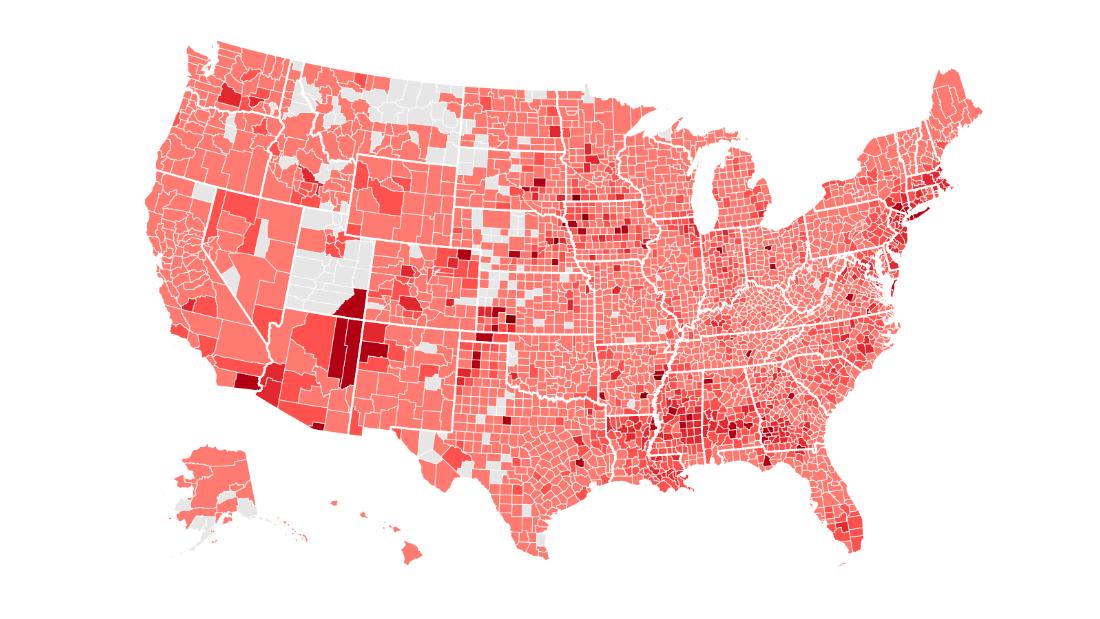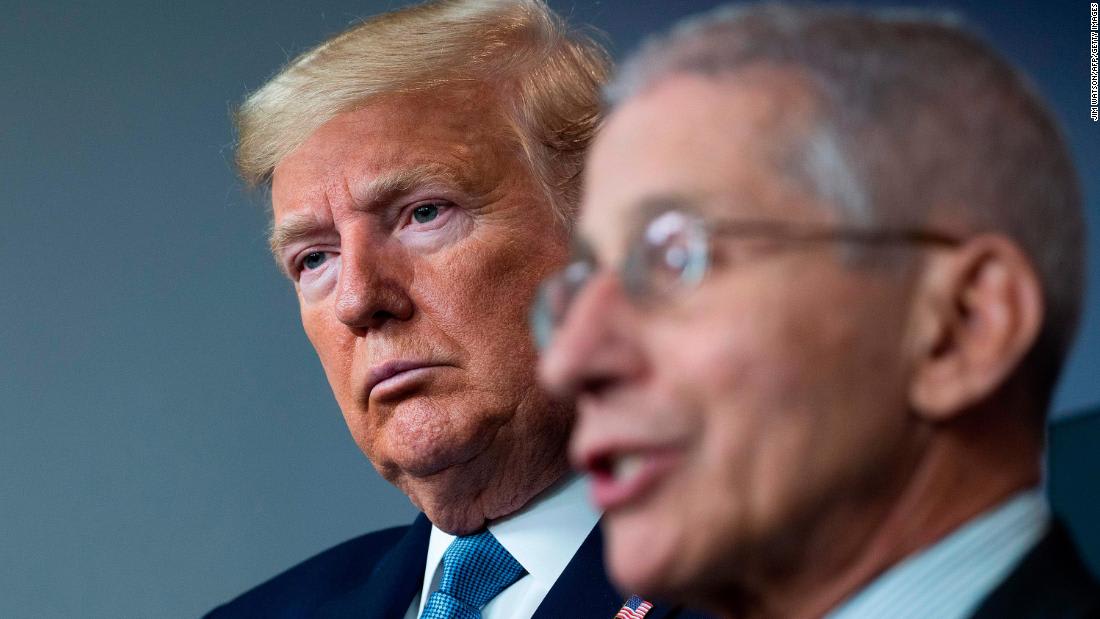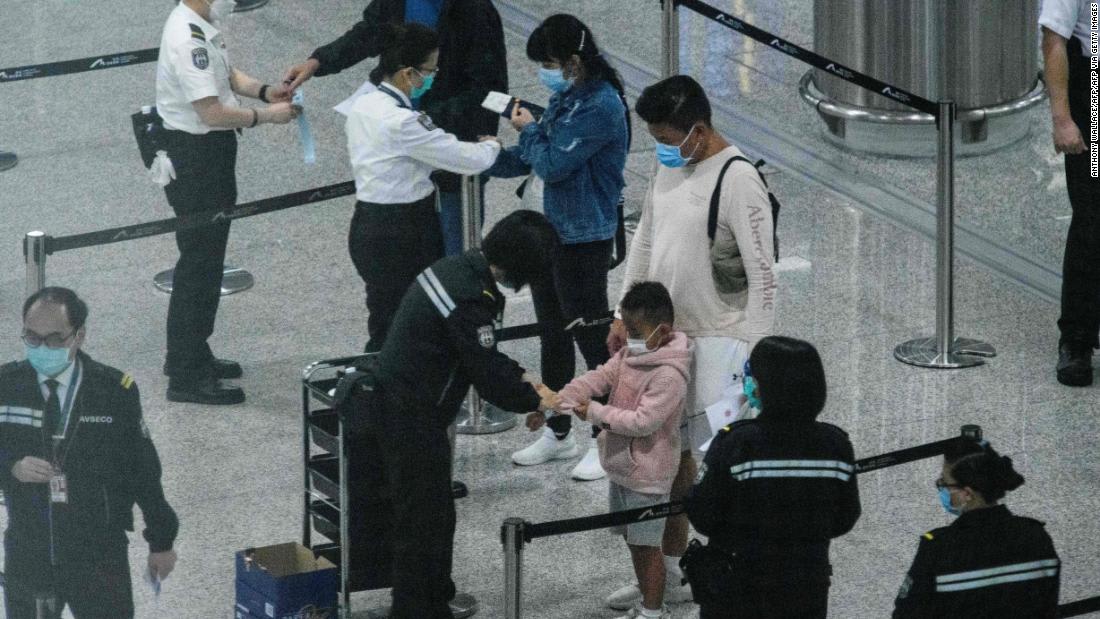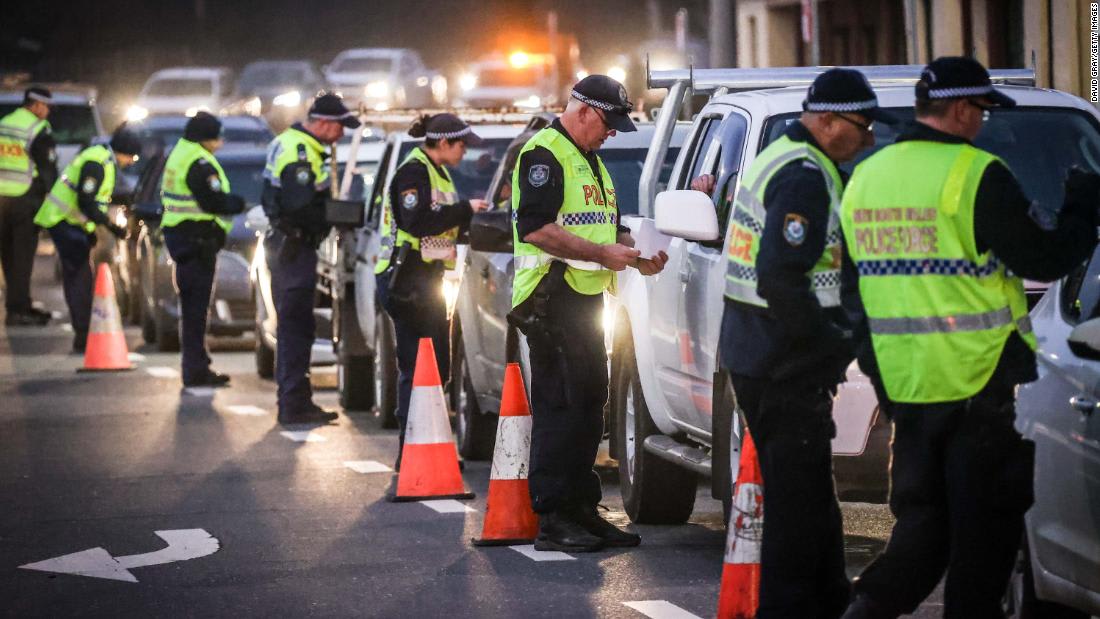India just recorded 100,000 coronavirus cases ... in five days
From CNN’s Manveena Suri in New Delhi
Authorities in India have recorded more than 100,000 cases of Covid-19 in the last five days, according to figures released by the country’s health ministry.
The ministry announced Thursday it had identified 24,879 new cases in a single 24-hour period -- India's highest in a single day since the pandemic began.
A total of 767,296 cases have now been identified in the country. More than 476,000 people have recovered, while 21,129 have died after contracting it.
A steady rise: The total number of daily new infections has been steadily rising in India, with the country registering more than 20,000 new coronavirus cases daily in the past week.
On Monday, India surpassed Russia to become the world's third-worst hit nation. Only the US and Brazil have identified more cases.
More than 58,000 cases of Covid-19 were reported in the US Wednesday
From CNN's Joe Sutton
A total of 3,054,699 cases of coronavirus have been identified in the United States since the pandemic began, according to Johns Hopkins University's tally. At least 132,300 people have died in the country after contracting the virus.
On Wednesday, Johns Hopkins reported 58,601 new cases and 820 deaths.
The totals include cases from all 50 states, the District of Columbia and other US territories, as well as repatriated cases.
Track cases in the US here:
Donald Trump is now in open dispute with US health officials
From CNN's Kevin Liptak and Nick Valencia
Five months into a still-raging pandemic that has killed more than 130,000 Americans, simmering tensions between President Donald Trump and the health experts who staff his government have escalated from private griping to open dispute.
The result, people at those agencies say, is a new sense of demoralization as they continue their attempts to fight a once-in-a-generation health crisis while simultaneously navigating the whims of a President who has shown little interest or understanding of their work.
That Trump does not trust nor follow the advice of experts such as Dr. Anthony Fauci, the nation's top infectious disease specialist, is hardly new. The President has not attended a meeting of his coronavirus task force in months and recently its sessions have been held outside the White House, including on Wednesday at the headquarters of the Department of Education. Fauci was told to participate in the meeting remotely by videoconference, preventing him from participating in a midday task force press briefing.
White House press secretary Kayleigh McEnany said later it's a "decision for the task force" who appears at coronavirus briefings. Asked if the President still has confidence in Fauci, McEnany said Trump "has confidence in the conclusions of our medical experts."
Still, the President has complained to aides in meetings for months that Fauci's television appearances -- which have been sharply curtailed by the White House -- often seem to contradict his own message. As early as March, Trump was growing frustrated that Fauci's forecasts for the virus seemed less optimistic than his own, but largely avoided public rebukes.
At the same time, many of Trump's aides have viewed the US Centers for Disease Control and Prevention with deep skepticism for months, believing its role in early testing missteps to have been a critical failure and viewing more recent leaks of draft guidance from the agency as attempts to circumvent the White House.
Yet as cases surge across the country and Trump's handling of the crisis causes his reelection prospects to dim, he is taking his quarrels with Fauci and the CDC public in striking new fashion.
Read more:
Hong Kong authorities warn of "exponential growth" in new Covid-19 cases
Authorities in Hong Kong, a city lauded for its quick and effective coronavirus response, are now warning of potential "exponential growth" in new Covid-19 cases after a surge in local transmissions.
Since Sunday, 65 patients have been diagnosed -- including 31 locally transmitted cases in what has been dubbed a "third wave" of the pandemic in the global financial center.
Taxi drivers, restaurant workers, a medical clinic employee and a retirement home resident -- some of the people most vulnerable to the virus and likely to spread it -- have been diagnosed.
"It is possible there could be a major outbreak," Dr. Chuang Shuk-kwan, the head of Hong Kong's Center for Health Protection (CHP) Communicable Disease Branch said Wednesday. "There could be a sudden exponential growth of cases."
Hong Kong has recorded only 1,324 coronavirus cases and seven virus-related fatalities since the pandemic began.
The city's success in containing Covid-19 has been attributed to the government's vigilant enforcement of quarantine for overseas arrivals, efficient contact tracing and residents' willingness to practice good hygiene, wear masks and practice social distancing.
While the new caseload and total number of people diagnosed with Covid-19 is very low compared to the United States and Brazil, experts say the latest rise shows the virus still poses a threat despite even the most stringent anti-epidemic controls.
"This virus will find every chink in your armor," said Dr. Sarah Borwein, a Hong Kong-based physician experienced in infectious diseases and epidemiology. "We've seen that in Beijing, in Singapore, in South Korea and now in Israel, Australia and elsewhere."
Read more:
Border community straddling Australia's two most populous states cleaved in two by lockdown
From CNN's Angus Watson in Albury, Australia, and Nectar Gan in Hong Kong
As Australia shut the border between its two most populous states to contain the spread of the coronavirus, tens of thousands of people living close to the dividing line have found their community cleaved in two.
Located on each side of the Murray River separating New South Wales and Victoria, the twin cities of Albury and Wodonga, more commonly referred to as Albury-Wodonga, have long operated as one community and one economy.
Many of their 100,000 residents cross the border every day. The two cities even share the same hospital, located in Albury on the NSW side but covered by Victoria's health system.
But that border was sealed on Wednesday, as authorities scrambled to prevent a second wave of infections spreading across the country. Over the past few weeks, Victoria has struggled to contain a sudden reemergence of coronavirus in Melbourne, as case numbers there continued to rise.
Authorities blocked major roads between Victoria and NSW after midnight -- the first time the border has closed since the Spanish flu pandemic a century ago.
Read more:
Ohio State pauses all voluntary workouts following latest positive coronavirus tests
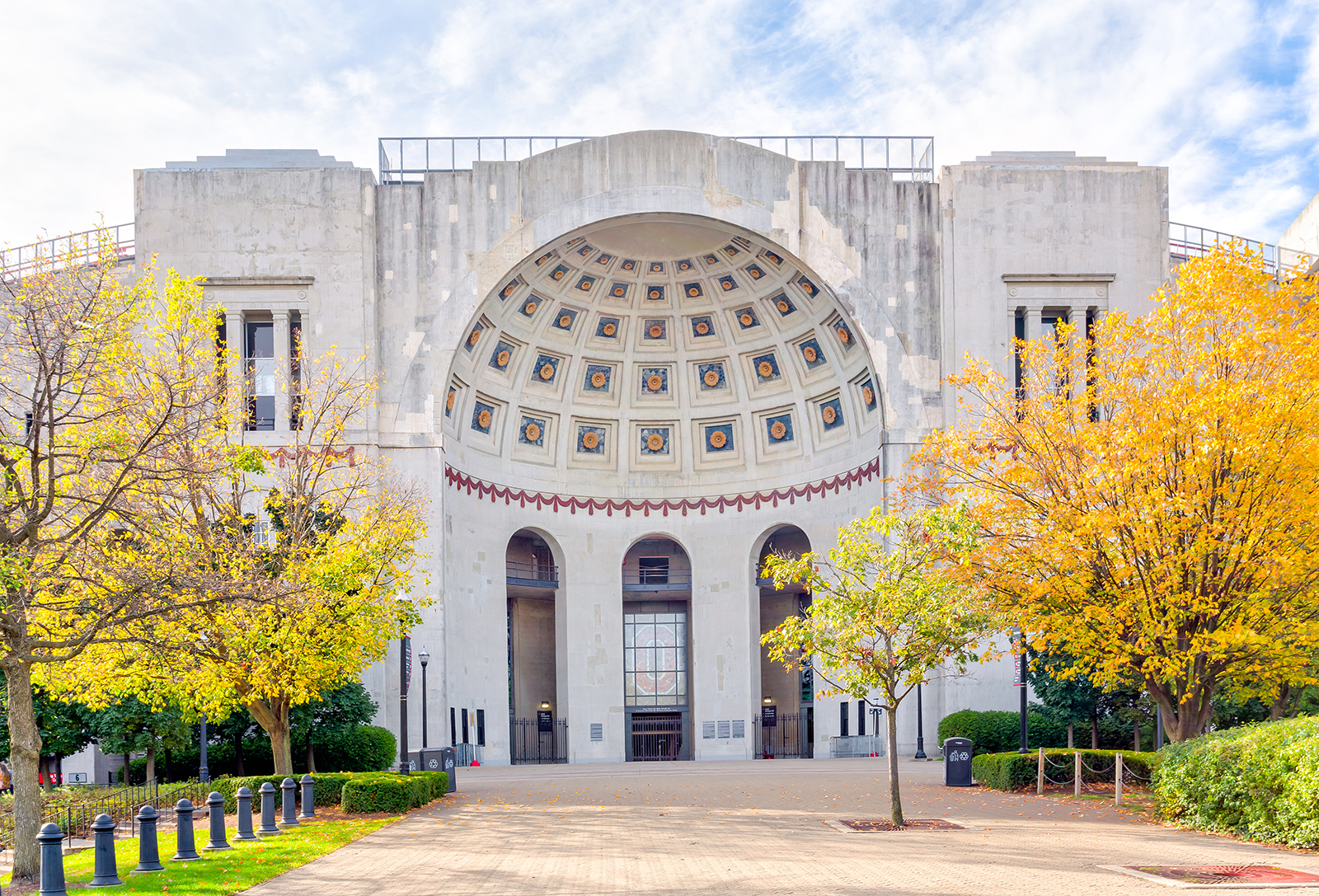 Ohio Stadium, also known as the Horseshoe, at The Ohio State University. Shutterstock
Ohio Stadium, also known as the Horseshoe, at The Ohio State University. ShutterstockThe Ohio State Department of Athletics has announced that the school has paused all voluntary workouts, “following the results of its most recent Covid-19 testing of student-athletes.”
The school is not sharing infection data publicly because "it could lead to the identification of specific individuals and compromise their medical privacy," the athletics department said in its statement.
The pause affects men’s and women’s basketball, field hockey, football, men’s and women’s soccer and women’s volleyball.
Earlier Wednesday, the University of North Carolina suspended its football program’s voluntary workouts after 37 players and staff tested positive for Covid-19.
Coronavirus was likely spreading widely across the US as early as February, model suggests
From CNN’s Naomi Thomas
Coronavirus was probably spreading widely across the US in February, new modeling data suggests, and it only took a few imported cases from other countries to set off rapid spread inside the borders.
While direct imports from China and other countries may have been responsible for the early introduction of Covid-19 to the US, most spread was state to state, researchers led by a team at Northeastern University in Boston reported.
“We estimate widespread community transmission of SARS-CoV-2 in February, 2020,” a team led by Northeastern’s Laboratory for the Modeling of Biological and Socio-technical Systems wrote on MedRxiv, a pre-print server. The work has not been peer-reviewed.
The US announced restrictions on travel from China on January 31. The researchers say their modeling study suggests the restrictions came far too late.
“Importations from mainland China may be relevant in seeding the epidemic in January, but then play a small role in the COVID-19 expansion in the US because of the travel restrictions imposed to/from mainland China after January 23, 2020,” they wrote.
The model contrasts with evidence from several studies that suggest there was already a significant number of infections in the US by the time the travel restrictions were announced on January 31, the researchers wrote.
Fauci defends Pence's optimism on coronavirus, says he's doing "a very good job"
From CNN’s Shelby Lin Erdman
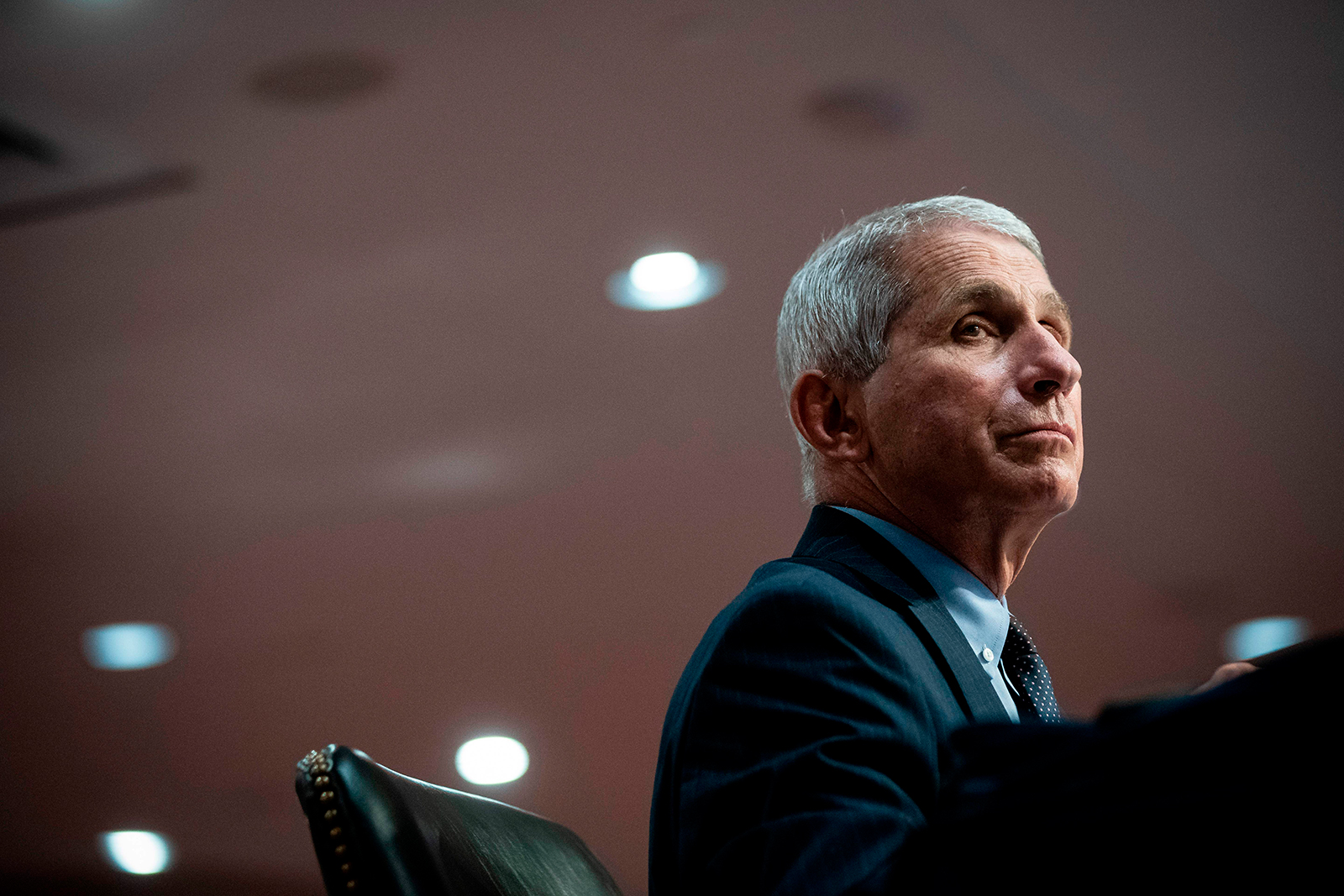 Anthony Fauci, director of the National Institute of Allergy and Infectious Diseases, listens during a Senate Health, Education, Labor and Pensions Committee hearing in Washington, DC, on June 30. Al Drago/Pool/Getty Images
Anthony Fauci, director of the National Institute of Allergy and Infectious Diseases, listens during a Senate Health, Education, Labor and Pensions Committee hearing in Washington, DC, on June 30. Al Drago/Pool/Getty ImagesThe United States' leading infectious disease expert, Dr. Anthony Fauci, said White House coronavirus task force leader Vice President Mike Pence is doing “a very good job.”
Fauci and task force coordinator Dr. Deborah Birx regularly sound the alarm about the pandemic at briefings or in interviews, while Pence has touted what a good job the Trump administration is doing.
“He is trying in his role as the vice president to really, in a certain sense, also point out some of the things that are going well,” Fauci told the Wall Street Journal in a podcast Wednesday.
“I look at the data, I analyze the data and I give my best opinion based on the evidence."
Fauci said there are many facets to the task force discussions, and he and his colleagues are primarily focused on public health. Pence, he said, has other concerns.
“There’s the issue and the need, from an economic standpoint, to get open," Fauci said. "So all of that goes into the mix and then you see the kind of recommendations that go out but you know as a member of the task force, I’m telling you that we have a serious situation that we really do need to address.”
Fauci said the public health and economic policies need to work in tandem. Other health experts worry that President Donald Trump has pushed his economic priorities at the expense of American lives. So far, more than 132,000 Americans have died from Covid-19.
“We shouldn't think of it as one against the other because once you start thinking there’s public health and there's the economy opening it looks like they're opposing forces,” Fauci said.
“So, what we're trying to do is to get the public health message, if heard and implemented, be actually a gateway to facilitate opening and an easier way instead of there’s guys are on this side and those guys and ladies are on the other side.”

 5 years ago
578
5 years ago
578 